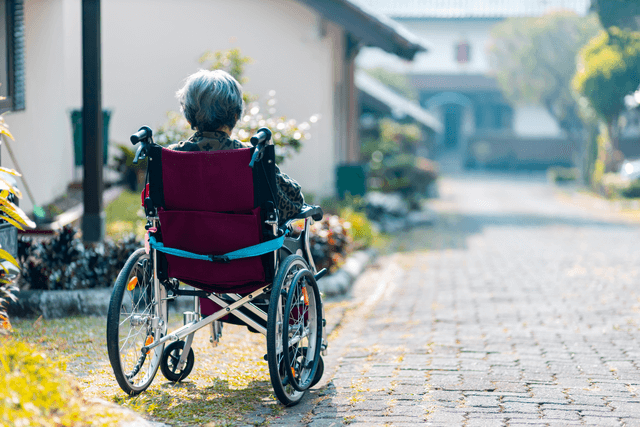Affecting approximately 5.5 million Americans, Alzheimer’s disease is an irreversible brain disorder that affects thinking, behavior, reasoning, memory and even a person’s natural wake/sleep cycle. During the aging process, adults in their mid-60s may start to notice changes in their sleep. For people with Alzheimer’s, these alterations tend to happen frequently and are more severe.
Sleep Deprivation May Increase Chances of Alzheimer’s
From a weakened immune system to a depleted sex drive, the damages of sleep deprivation abound. According to a recent study, the risk of Alzheimer’s disease might be a negative effect, too. In the study, losing just one night of sleep boosted beta-amyloid, a protein in the brain linked with neurological damage and Alzheimer’s disease. Furthermore, another study stated sleep deprivation for as little as one night can increase tau protein levels by as much as 50%. This protein is found tangled in the brains of Alzheimer’s patients and can lead to nerve cell damage.
One study states that the brain activity associated with deep non-REM sleep is conducive to a functioning glymphatic system, which helps the brain remove waste. Researchers in this study suggest that sleep deprivation impairs the glymphatic system, resulting in a buildup of toxins linked to Alzheimer’s such as beta-amyloid and tau.
The question remains whether Alzheimer’s causes sleep problems, or if sleep disturbances are an early indicator of the disease. Recently, a state-of-the-art research center at the University of East Anglia opened to help answer this huge question.
If you or a loved one suffers from Alzheimer’s disease, there are ways to improve your sleep and get back on track to seven to eight hours of rest. Following a consistent sleeping schedule is important for getting enough slumber.
Comfort and relaxation are key components in the bedroom. Outfit the mattress with SHEEX Performance Bedding and pillows. It combines unbeatable comfort, innovative breathability and moisture-wicking technologies for a deeper, restorative, and cooler slumber.
How Does Alzheimer’s Affect Sleep?
The amount of sleep Alzheimer’s patients get typically depends on what stage they’re in with their disease -- Mild, Moderate or Severe Alzheimer’s. In a mild period, you may sleep excessively and wake up disoriented. As the Alzheimer’s progresses, you might sleep throughout the day and wake up during the night. In the advanced stages of the disease, it becomes more common to sleep for shorter periods at irregular times throughout the day and night. Brain wave studies have shown that these sporadic sleep times can lead to decreases in dreaming and non-dreaming stages of sleep.
Whenever Alzheimer’s patients deal with irregular sleep times, they can often become agitated and/or restless when the sunsets. This condition is known as sundowning or sundown syndrome. Since there are less light and more darkness surrounding the environment, this can cause fear and confusion. Alzheimer’s patients also may have trouble distinguishing dreams from reality, which can cause disorientation. About one out of five people with the disease experience sundowning - and even elderly people without dementia can get it, too.
Scientists aren’t completely sure why Alzheimer’s patients have problems with sleeping. Some theorize that it may be due to the fact that the disease deteriorates the brain, affecting the way it determines when to rest and when to stay awake.
Treatment for Alzheimer’s Sleeping Problems
Most doctors and the National Institutes of Health (NIH) advise using non-drug treatments instead of medication to mitigate the sleep disturbances people with Alzheimer’s experience. According to studies, using sleep medication doesn’t particularly improve the overall quality of sleep for older adults. Sleep aids tend to have a harmful effect on people with Alzheimer’s, causing them even more confusion and making them more susceptible to falling.
However, a recent study stated that suvorexant, an FDA-approved drug for insomnia reported to be safe among the elderly, may help Alzheimer’s patients sleep longer and better. In the study, the participants on the drug slept 28 minutes longer than those who took a placebo.
If you’re a caregiver or you have a loved one suffering from Alzheimer’s, consider incorporating these lifestyle and behavioral changes into their lives to help ease their sleep problems:
- Ensure they’re getting exercise in each day, which can help promote better sleep.
- Try to keep them on a routine 24-hour schedule by maintaining regular times for waking, eating and falling asleep. Also, try to discourage naps, or least restrict them to 30 minutes.
- Encourage them to get out into the sunlight during the mornings.
- Avoid caffeine, alcohol, and nicotine near bedtime
- Make sure the bedroom is relaxing. Keep the temperature comfortable, reduce noise levels and keep the lights low. Also, consider providing night lights. Complete darkness could cause anxiety.
- Check with the doctor to see if your loved one is dealing with conditions such as restless leg syndrome or sleep apnea that can cause sleeping problems.







